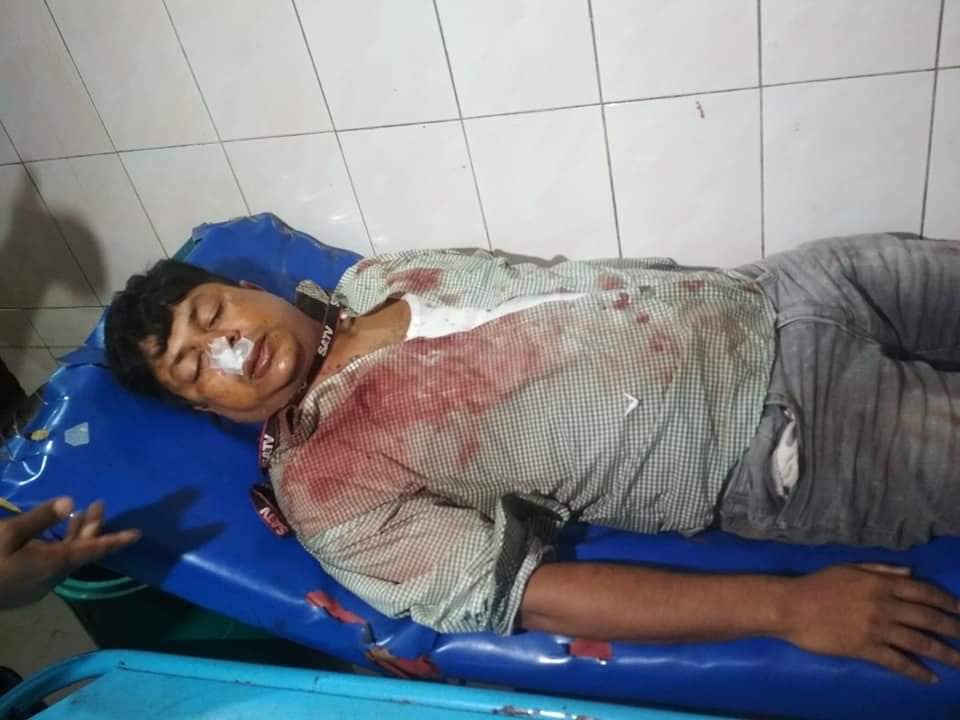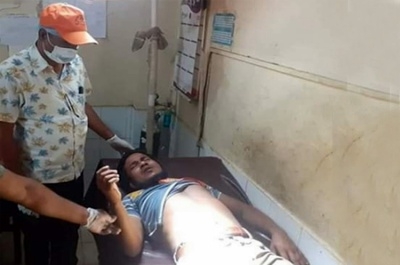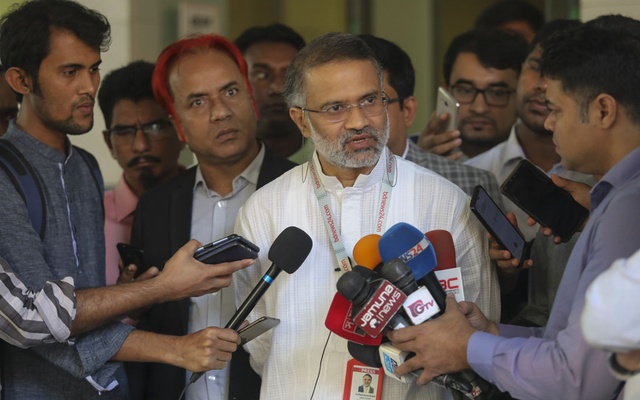Covid-19 triggers surge in violence, prosecutions against Bangladeshi journalists

Reporters Without Borders (RSF) is alarmed by the increase in cases of civilian and police violence and judicial harassment of journalists trying to cover coronavirus-related issues in Bangladesh in the month since a general lockdown was imposed on the population. Many of the cases are detailed below.
The latest victim is Sajal Bhuiyan, a reporter for the privately-owned SATV channel who was hospitalized unconscious and with his face blooded last Thursday after being badly beaten while trying to cover the misappropriation of rice earmarked for disadvantaged sectors of the population in Dhaka’s Narsingdi district.
Government food handouts designed to mitigate the economic hardship resulting from the lockdown have given rise to several cases of corruption at the local level including this one, which Bhuiyan was investigating together with SATV Khoj current affairs programme presenter Baten Biplob.
When the two journalists tried to approach Nasir Uddin, a district boss accompanied by several henchmen, they were badly beaten with sticks. In a Facebook post, Biplod described how they were attacked and how, “fearing for his life,” he managed to drag Bhuiyan’s body on to a push-chair and then flee.

Sajal Bhuiyan was hospitalized unconscious at Narsingdi government hospital (photo: Baten Biplod).
“We call on Bangladeshi prosecutors to order the immediate arrest of those responsible for the unacceptable violence against Sajal Bhuiyan and Baten Bliplod,” said Daniel Bastard, the head of RSF’s Asia-Pacific desk. “We have also registered many other cases of physical violence, police violence and judicial harassment of journalists trying to cover the coronavirus crisis. Prime Minister Sheikh Hasina’s government must do everything possible to end this alarming surge in press freedom violations.”
Serious injuries
Rezwan Karim Sabbir, a reporter for the Nayadiganta and Sylhet Mirror daily newspapers in Jaintiapur, in the northeast of the country, was hospitalized with serious head injuries on the afternoon of 21 April after being attacked by a local official identified as Abul Hasim, who was annoyed by an article in which Sabbir had reported a local coronavirus case.

Rezwan Karim Sabbir was transfered to Sylhet MAG Osmani Medical College Hospital (photo: janomot.com).
Abdul Latif Litu, a reporter for the Bangladesh Pratidin daily newspaper and News24 TV, was attacked and badly beaten by several police at around 10 p.m. on 21 April in the northwestern district of Thakurgaon for not respecting the curfew, although he was returning home after spending the day covering respect for the lockdown rules in the district.
Bangla Vision TV reporter Kamal Hossain was attacked be several men in the southern city of Barishal on 18 April when he tried to cover a gathering that had formed – in violation of the lockdown – because members of the local Department of Narcotics were selling alcohol to the public.
Police violence
Tuhin Howlader, a reporter for the Bangladesh Pratidin daily, was ordered to stop at a police checkpoint in Dhaka on 16 April but, before he had time to show his ID to the police, one of the policemen began hitting him with his baton with the result that Howlader had to be admitted to Dhaka Medical College and Hospital for treatment to his injuries.
When two journalists, Ekattor Television’s Shahjahan Ali Babu and Mazed Rahman, a reporter for Somoy Television and Bangladesh Pratidin, were stopped on 12 April at a police checkpoint near Bogura, 200 km northwest of the capital, they were forcibly detained and taken to a nearby police station, where they were not released until a senior officer intervened.
Judicial reprisals
A number of journalists have been subjected to judicial reprisals in connection with their coverage of the Covid-19 epidemic’s impact. Charges were brought against four journalists on 18 April under articles 25, 29 and 31 of the Digital Security Act in connection with another case of alleged misappropriation of Covid-19 food aid in the northwestern district of Thakurgaon.
As a result of a complaint filed by a local representative of the ruling Awami League, Bdnews24.com news site reporter Rahim Shubho, his editor Toufique Khalidi, Jagonews24.com website reporter Shaon Amin and the site’s interim editor, Mohiuddin Sarker, are all facing the possibility of ten years in prison on charges of “publishing of offensive, false, defamatory or fear-inducing data or information.”

Bdnews24.com news site chief editor Toufique Khalidi faces the possibility of ten years in prison (photo: Bdnews24.com).
Dainik Odhikar reporter Al Mamun Jibon was charged under the Digital Security Act by police in Thakurgaon’s Baliadangi district on 15 April with defaming the local government and disturbing public order simply because of a Facebook post criticizing the failure of the authorities to take effective lockdown measures, and citing the large volume of movements by migrant workers.
Arbitrary detention
Dainik Bangladesher Alo reporter Golam Sarwar Pintu was arrested under the Digital Security Act in Dhaka on 14 April. According to the information obtained by RSF, his arrest was prompted by an article about the food shortages among the poorest sectors of the population as a result of the lockdown. After he was held overnight in a police station, a court refused to free him on bail and jailed him pending trial.
While on his way to work in the southeastern city of Chittagong on 10 April, Nasir Uddin Rocky, a reporter for the Dainik Jugantor daily newspaper, was stopped at a checkpoint by a police officer who accused him to violating the lockdown, hit him and detained him arbitrarily under a superior had him released.
Bangladesh is ranked 151st out of 180 countries in RSF’s 2020 World Press Freedom Index, one place lower than in 2019.



